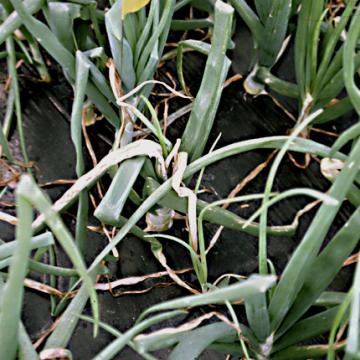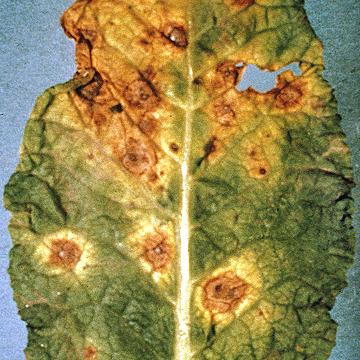DISEASE: Bacterial blast
HOST: Pear
The bacterium infects all flower parts and may spread and kill the entire spur.

Bacterial blast | Pear
DISEASE: Bacterial blast
HOST: Pear (Pyrus communis)
PATHOGEN: Pseudomonas syringae pv. syringae
SOURCE: W. Sinclair
DISEASE: Center rot
HOST: Onion
Early symptoms of disease are necrotic, bleached areas on young leaves that typically wilt.

Center rot | Onion
DISEASE: Center rot
HOST: Onion (Allium cepa)
PATHOGEN: Pantoea ananatis
SOURCE: R. Gitaitis
DISEASE: Center rot
HOST: Onion
Advanced stage of center rot. The bacterium has moved down from leaves into the bulb.

Center rot | Onion
DISEASE: Center rot
HOST: Onion (Allium cepa)
PATHOGEN: Pantoea ananatis
SOURCE: H. Schwartz
DISEASE: Center rot
HOST: Onion
Bulb with pale yellow, discolored decayed area.
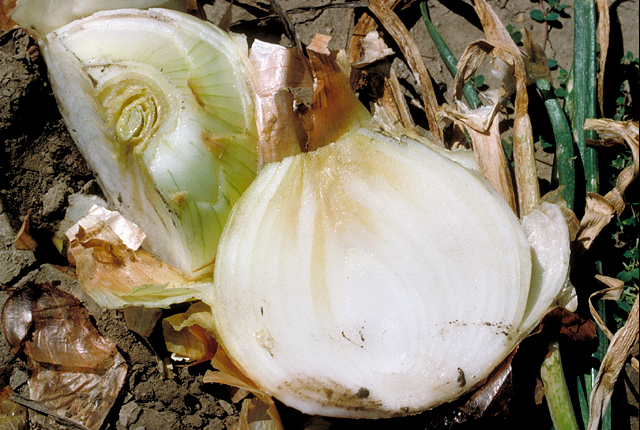
Center rot | Onion
DISEASE: Center rot
HOST: Onion (Allium cepa)
PATHOGEN: Pantoea ananatis
SOURCE: H. Schwartz
DISEASE: Pseudomonas leaf spot
HOST: Marigold
Marigolds with yellow apical chlorosis attributed to toxin production by the pathogen.
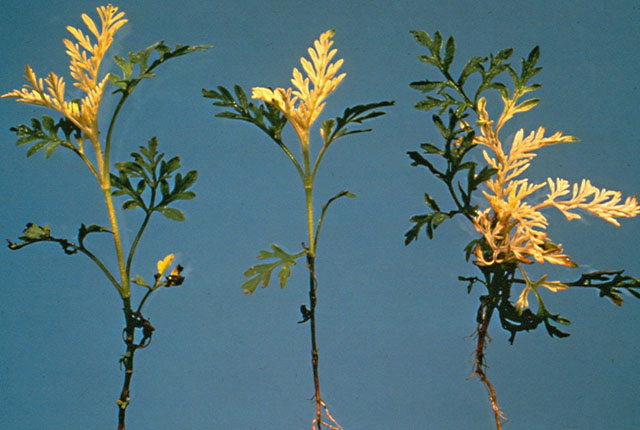
Pseudomonas leaf spot | Marigold
DISEASE: Pseudomonas leaf spot
HOST: Marigold (Tagetes erecta)
PATHOGEN: Pseudomonas syringae pv. tagetis
SOURCE: R. Durbin
DISEASE: Pseudomonas leaf spot
HOST: Marigold
Chlorotic leaves with total loss of chlorophyll. Disease is also known as toxic chlorosis.
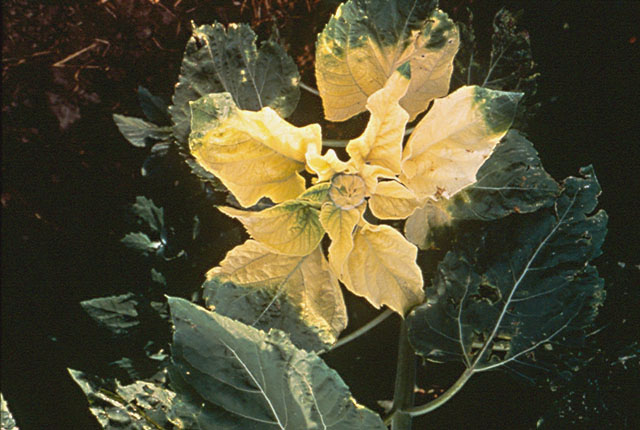
Pseudomonas leaf spot | Marigold
DISEASE: Pseudomonas leaf spot
HOST: Marigold (Tagetes erecta)
PATHOGEN: Pseudomonas syringae pv. tagetis
SOURCE: R. Durbin
DISEASE: Pseudomonas leaf spot
HOST: Marigold
Plants with bright yellow apical chlorosis.

Pseudomonas leaf spot | Marigold
DISEASE: Pseudomonas leaf spot
HOST: Marigold (Tagetes patula)
PATHOGEN: Pseudomonas syringae pv. tagetis
SOURCE: R. Durbin
DISEASE: Pseudomonas leaf spot
HOST: Primrose
Leaf with brownish red spots and reddening of adjacent areas. Disease begins as small, water-soaked lesions that later coalesce into large necrotic spots.
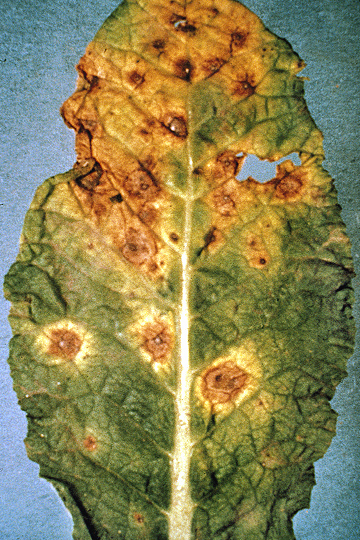
Pseudomonas leaf spot | Primrose
DISEASE: Pseudomonas leaf spot
HOST: Primrose (Primula sp.)
PATHOGEN: Pseudomonas syringae pv. primulae
SOURCE: APS



